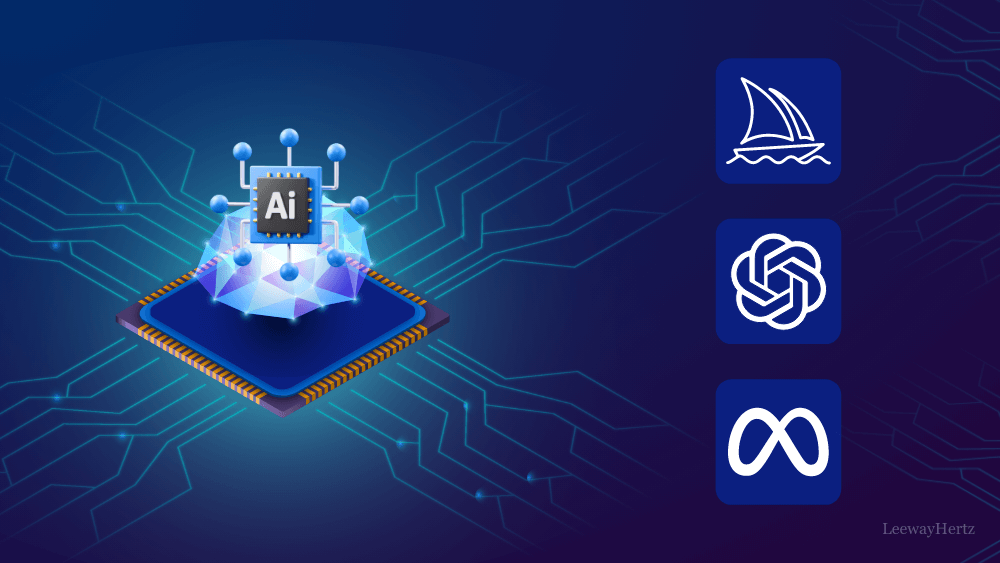The Evolution of Intelligent Process Automation Solutions: Transforming Business Operations
Estimated reading time: 8 minutes
Key Takeaways
- Intelligent Process Automation (IPA) solutions combine AI, machine learning, and advanced software to transform business processes.
- IPA solutions can handle complex, cognitive tasks that traditional automation tools cannot.
- The integration of technologies like AI, RPA, NLP, and computer vision makes IPA solutions powerful and adaptable.
- Organizations implementing IPA see improvements in efficiency, accuracy, and customer experience.
- Emerging trends in IPA include hyper-automation, end-to-end automation, and cognitive automation.
Table of Contents
- The Evolution of Intelligent Process Automation Solutions
- Understanding Intelligent Process Automation Solutions
- The Building Blocks of IPA Solutions
- The Power of Integration
- The Competitive Edge: IPA vs. Traditional Automation
- Real-World Benefits and Applications
- Practical Applications Across Industries
- The Future of IPA: Emerging Trends
- Conclusion
In an era where digital transformation is no longer optional, intelligent process automation (IPA) solutions are emerging as game-changers in the business world. These sophisticated systems represent the next frontier in automation technology, combining artificial intelligence, machine learning, and advanced software capabilities to revolutionize how organizations handle complex business processes.
Understanding Intelligent Process Automation Solutions
Intelligent process automation solutions are far more than just another tech buzzword. They represent a sophisticated blend of cutting-edge technologies that work together to transform business operations. Unlike traditional automation tools, IPA solutions can tackle complex, cognitive tasks that previously required human intelligence and decision-making capabilities.
The Building Blocks of IPA Solutions
At its core, IPA combines several powerful technologies:
- Artificial Intelligence and Machine Learning The backbone of IPA solutions lies in their AI and machine learning capabilities. These technologies enable systems to mimic human-like decision-making processes and, more importantly, improve their performance over time through continuous learning. According to research from OpenLegacy, these capabilities allow IPA solutions to handle complex scenarios that would stump traditional automation tools. For more insights on how AI revolutionizes business automation, refer to Flux AI: Revolutionizing Business Automation for Maximum Efficiency and Growth.
- Robotic Process Automation (RPA) RPA serves as the foundation for IPA solutions, handling repetitive, rules-based tasks with precision. As reported by Advanced Systems Concepts, RPA provides the basic automation framework that IPA builds upon to create more sophisticated solutions.
- Natural Language Processing (NLP) Kissflow research highlights how NLP enables IPA systems to understand, interpret, and act on unstructured text data—a capability that sets it apart from traditional automation tools.
- Computer Vision and OCR These technologies give IPA solutions the ability to "see" and interpret visual information, including scanned documents and handwritten forms, as noted by Advanced Systems Concepts.
- Analytics and Process Mining These components help organizations uncover inefficiencies and trends in their business processes, enabling continuous improvement and optimization.
The Power of Integration
What makes IPA solutions truly remarkable is how they integrate these technologies to perform complex, end-to-end processes. For instance, an IPA system can:
- Read and understand an incoming email
- Extract relevant information from attachments
- Update multiple enterprise systems
- Initiate appropriate follow-up actions
- All without human intervention
This seamless integration is a hallmark of advanced IPA systems, as discussed in The Power of Hyperautomation Solutions: Transforming Business Operations in 2024.
The Competitive Edge: IPA vs. Traditional Automation
The advantages of IPA solutions over traditional automation are significant:
Data Handling Capabilities:
- Traditional RPA: Limited to structured data
- IPA: Handles both structured and unstructured data with ease
Adaptability:
- Traditional RPA: Follows rigid, pre-defined rules
- IPA: Learns and adapts to new situations autonomously
Process Coverage:
- Traditional RPA: Handles only repetitive, predictable tasks
- IPA: Manages end-to-end, complex, dynamic processes
Real-World Benefits and Applications
Organizations implementing IPA solutions are seeing tremendous benefits:
- Operational Efficiency According to OpenLegacy, IPA systems operate continuously, dramatically reducing process completion times compared to both human operators and traditional RPA solutions.
- Enhanced Accuracy AI-driven decision-making significantly reduces errors, especially in environments dealing with high volumes of data.
- Data-Driven Insights IPA solutions can analyze vast datasets to provide actionable business intelligence, helping organizations make better-informed decisions.
- Customer Experience By automating complex interactions, organizations can provide faster response times and more personalized services to their customers.
- Business Agility Advanced Systems Concepts reports that IPA solutions can adapt to changing business conditions without requiring extensive reprogramming, supporting innovation and resilience.
For strategies on implementing automation to maximize ROI, see Secure Implementation of Automation: A Guide to Maximizing ROI and Measuring Success.
Practical Applications Across Industries
IPA solutions are finding applications across various business functions:
Finance and Accounting:
- Automated invoice processing
- Expense validation
- Compliance monitoring
Customer Support:
- Intelligent query handling
- Automated ticket classification
- Smart escalation processes
Human Resources:
- Streamlined onboarding processes
- Automated payroll processing
- Benefits administration
IT Operations:
- Incident management
- Automated troubleshooting
- User provisioning
Document Processing:
- Intelligent data extraction
- Document classification
- Automated routing
The Future of IPA: Emerging Trends
The IPA landscape continues to evolve with several emerging trends:
- Hyper-Automation As reported by Kissflow, there's a growing trend toward integrating multiple automation technologies to automate as many business processes as possible.
- End-to-End Automation Advanced Systems Concepts notes the increasing focus on straight-through processing, minimizing human intervention from start to finish.
- Cognitive Automation OpenLegacy highlights the growing emphasis on solutions that can reason, learn, and interact naturally with people and systems.
Conclusion
Intelligent process automation solutions represent a significant leap forward in business process automation. By combining AI, machine learning, and advanced data processing capabilities, IPA solutions are enabling organizations to achieve unprecedented levels of efficiency, accuracy, and insight. As these technologies continue to evolve, they will undoubtedly play an increasingly crucial role in shaping the future of business operations. For a comprehensive understanding of IPA's role in business transformation, refer to The Rise of Intelligent Process Automation Solutions: Transforming Business Operations.
Frequently Asked Questions
- What is Intelligent Process Automation (IPA)?
- How does IPA differ from traditional automation?
- What are the key benefits of implementing IPA solutions?
- Which industries can benefit most from IPA?
- What are the emerging trends in IPA?
What is Intelligent Process Automation (IPA)?
Intelligent Process Automation combines AI, machine learning, RPA, and other advanced technologies to automate complex business processes that require cognitive abilities.
How does IPA differ from traditional automation?
Unlike traditional automation, which handles repetitive tasks based on predefined rules, IPA can process unstructured data, learn from experience, and adapt to new situations autonomously.
What are the key benefits of implementing IPA solutions?
Key benefits include increased operational efficiency, enhanced accuracy, insightful analytics, improved customer experience, and greater business agility.
Which industries can benefit most from IPA?
Industries across finance, customer service, human resources, IT operations, and document processing can significantly benefit from IPA implementations.
What are the emerging trends in IPA?
Emerging trends include hyper-automation, focusing on automating as many processes as possible, end-to-end automation minimizing human intervention, and cognitive automation that can reason and learn.

